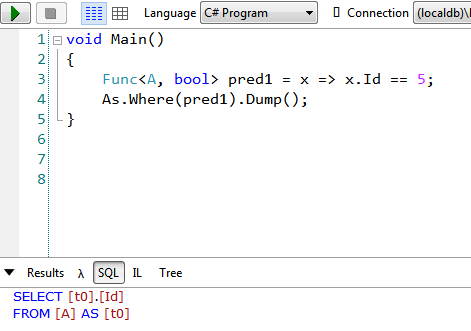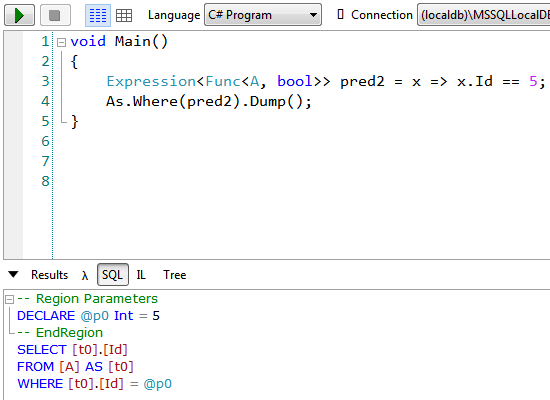I work with a quite big enterprise system in my job. Not surprisingly, it uses Entity Framework (Core, but it does not matter) and SQL Server. The system consists of multiple reusable components also in the data access layer. I had to modify DbContext and write some flexible and reusable method accepting a predicate as an argument and apply the predicate on a DbContext. Let’s assume we are using the table A from the previous post. I happily coded the signature of the method to use Func. Let’s simulate this in the LINQPad and run our Func against a DbContext.

It did not work. Or… did it? The picture above shows only generated SQL, but I promise the results show correctly the one record. The problem is, the predicate has been applied in memory after having pulled all the records from table A into memory as well. I am not going to explain what it means for any reasonably sized system. The correct way of doing this is to use Expression<Func<A, bool>>.

The explanation is in fact really obvious for anyone deeply understanding how ORMs work. The data structure which allows for inspecting a predicate on the fly and building final SQL query is Expression. There is already an infrastructure for so-called expression visitors. Please also note, that you can always get your Func from Expression<Func> by calling Compile method on it.
